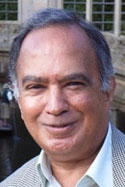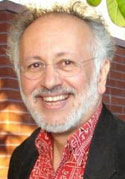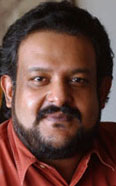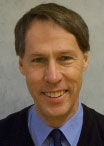Address: Swedish Collegium for Advanced Study, Linneanum, Thunbergsvägen 2, SE-752 38 Uppsala, Sweden
Web page: www.swedishcollegium.se
Contact persons: Björn Wittrock, Professor in Political Science at Uppsala University, and
Principal of SCAS, phone: +46 (0)18 557085
Sandra Maria Rekanovic, Coordinator, SCAS, phone: +46 (0)18 557 085
Founded in 1985 SCAS was the first institute of its kind in Northern Europe. It is a national scientific institution, chartered by the Government of Sweden as an institute for advanced study mainly in the social and human sciences. In 1991 SCAS was a founding member of SIAS (”Some Institutes for Advanced Study”), a group of nine leading European and American institutes for advanced study, among them IAS Princeton and Wissenschaftskolleg zu Berlin.
A core component of an institute for advanced study is a highly selective programme for visiting fellows. Scholars can apply to become Fellows-in-residence and after an extensive review process thirty senior as well as early career scholars are invited to spend one academic semester or one year at SCAS. Fellows are entirely free to focus on their own research whether they choose to work individually or form part of a thematic group. As a scholarly community the Collegium provides an environment that is conducive to a lively intellectual dialogue across disciplinary boundaries.
Research fellows from South Asia
Over the years, a number of researchers from South Asia have been selected for fellowships at SCAS. Among them can be mentioned Amit Bhaduri from Jawaharlal Nehru University in New Delhi (Spring 1997); T. K. Oommen, Jawaharlal Nehru University, New Delhi (Spring 1998); Veena Das, University of Delhi, and New School for Social Research, New York (Autumn 1999); Swati Chattopadhyay, University of California, Santa Barbara (Spring 2007); and Krishnan Srinivasan, Maulana Abul Kalam Azad Institute of Asian Studies, Kolkata (Spring 2008).

 Krishnan Srinivasan was again a Research Fellow at SCAS for the academic year 2012/13. Srinivasan is both ascholar and a diplomat (retired). He graduated from Christ Church, Oxford and joined the Indian diplomatic service i 1959. After serving as ambassador to several countries, he was appointed Commonwealth deputy secretary-general until 2002. He has held academic appointments at Oxford, Cambridge, the Netherlands and India where he is Honorary Professor at ASCI Hyderabad and Fellow of the Maulana Azad Institute for Asian Studies at Kolkata.
Krishnan Srinivasan was again a Research Fellow at SCAS for the academic year 2012/13. Srinivasan is both ascholar and a diplomat (retired). He graduated from Christ Church, Oxford and joined the Indian diplomatic service i 1959. After serving as ambassador to several countries, he was appointed Commonwealth deputy secretary-general until 2002. He has held academic appointments at Oxford, Cambridge, the Netherlands and India where he is Honorary Professor at ASCI Hyderabad and Fellow of the Maulana Azad Institute for Asian Studies at Kolkata.
Durng his stay in Uppsala, Srinivasan worked on a monograph on the future relationship between Europe and the emerging powers of Asia. He argues that with the economic downturn in Europe and the grpwth in politico-economic assertiveness among some Asian nations, these interactions will require reflection, introspection, and a re-set.
On Tuesday 7 May 2013, Srinivasan held a highly interesting SASNET lecture at Lund University. It was organised in collaboration with the Dept. of Political Science. He spoke about ”Europe’s engagement with Emerging Asia; reflections on a new roadmap”. More information.
 During the academic year 2010/11, Professor Kapil Raj, Directeur d’études at École des hautes études en sciences sociales (EHESS) in Paris, was a SCAS Fellow. At EHESS, Raj is attached to the Centre d’Études de l’Inde et de l’Asie du Sud (CEIAS) and the Centre Alexandre Koyré pour l’histoire des sciences et des techniques, of which he is at present co-chair. He has also been Visiting Professor at many institutions, including Jawaharlal Nehru University, New Delhi; Uppsala University; University of Chicago; Northwestern University, Chicago; and University of California, Los Angeles. He is the current President of the “Science and Empires” Commission of the International Union of History and Philosophy of Science, and a member of the editorial boards of The British Journal for the History of Science and of Purushartha, a French journal of South Asian studies.
During the academic year 2010/11, Professor Kapil Raj, Directeur d’études at École des hautes études en sciences sociales (EHESS) in Paris, was a SCAS Fellow. At EHESS, Raj is attached to the Centre d’Études de l’Inde et de l’Asie du Sud (CEIAS) and the Centre Alexandre Koyré pour l’histoire des sciences et des techniques, of which he is at present co-chair. He has also been Visiting Professor at many institutions, including Jawaharlal Nehru University, New Delhi; Uppsala University; University of Chicago; Northwestern University, Chicago; and University of California, Los Angeles. He is the current President of the “Science and Empires” Commission of the International Union of History and Philosophy of Science, and a member of the editorial boards of The British Journal for the History of Science and of Purushartha, a French journal of South Asian studies.
At SCAS, Raj worked on his current research project on the history of Kolkata (Calcutta) as a space of intercultural encounter and interaction between Asians and Europeans and the forms of intellectual and material practices that resulted from this encounter between 1690 and 1830. On 16 February 2011, he gave a SCAS lecture on ”Settling Differences, Managing Difference: The Intellectual and Urban Dynamics of Calcutta, 1690-1820”. The seminar was organised in collaboration with the Uppsala Interdisciplinary Seminar in Eighteenth-Century Studies. More information.

 During the Spring Semester 2012, Professor Jyotirmaya Sharma from the Dept. of Political Science, University of Hyderabad, India, was a Fellow at Collegium.
During the Spring Semester 2012, Professor Jyotirmaya Sharma from the Dept. of Political Science, University of Hyderabad, India, was a Fellow at Collegium.
The Lichtenberg-Kolleg at Goettingen also elected him Fellow for the academic year 2012-13. His recent publications include, ”Hindutva: Exploring the Idea of Hindu Nationalism” (Penguin/Viking, 2003) and ”Terrifying Vision: M.S. Golwalkar, the RSS and India” (Penguin/Viking, 2007). He is currently working on the thought of Ananda K. Coomaraswamy, Tagore and Gandhi, while simultaneously working on a book exploring the life and ideas of Gandhi. An edited volume titled ”Grounding Morality: Freedom, Knowledge and the Plurality of Cultures” (co-edited with A. Raghuramaraju) has now been published by Routledge (2010). He has been a fellow of the Centre for the Study of Developing Societies and the Indian Institute of Advanced Study, and has lectured at the universities of Baroda, Hull, Oxford, and the St. Stephens College, Delhi.
On Tuesday 15 May 2012, Prof. Sharma held a SCAS lecture about ”Creating a Religion: Some Thoughts on Hindu Identity”. Venue: Linneanum, Thunbergsvägen 2, Uppsala. More information about the SCAS lectures during the spring 2012.
Conferences and workshops
On 16-17 September, 2011, the Swedish Collegium for Advanced Study (SCAS) hosted a workshop entitled ”The Identity of Modern India Political Thought: Power, Politics and the Political” in Uppsala. The workshop was organized on behalf of the Indian-European Advanced Research Network (IEARN), and was a work meeting of its Intellectual History-Political Thought Group. The aim of the Uppsala workshop, which was the fourth meeting of the group, was to continue the work towards the publication of a collaborative volume, with the same title as the worskhop. Participants included Sudipta Kaviraj (Columbia University, New York), Sunil Khilnani (King’s College, London), Karuna Mantena (Yale University, New Haven, CT), and Dilip Menon (University of the Witwatersrand, Johannesburg).
Read a report from the Uppsala SCAS workshop.
International Institute of Sociology
 SCAS also houses the International Institute of Sociology (IIS) Secretariat. Since 2005, Prof. Björn Wittrock (photo) is the Director for IIS.
SCAS also houses the International Institute of Sociology (IIS) Secretariat. Since 2005, Prof. Björn Wittrock (photo) is the Director for IIS.
IIS is a scholarly organization, founded in 1893, which seeks to stimulate and facilitate the development, exchange, and application of scientific knowledge to questions of sociological relevance. Membership is open to all sociologists as well as to scholars in neighbouring disciplines. Every two years the IIS organizes a world congress in Sociology. These congresses are vibrant intellectual events.
 The 40th World Congress of International Institute of Sociology (IIS) was held at New Delhi, India 16–19 February 2012. The theme of the conference was ”After Western Hegemony: Social Science and its Publics”. It was jointly sponsored bySCAS and the Centre for the Study of Developing Societies (CSDS) in Delhi. The main organisers were Prof. Wittrock and Rajeev Bhargava, Director of CSDS.
The 40th World Congress of International Institute of Sociology (IIS) was held at New Delhi, India 16–19 February 2012. The theme of the conference was ”After Western Hegemony: Social Science and its Publics”. It was jointly sponsored bySCAS and the Centre for the Study of Developing Societies (CSDS) in Delhi. The main organisers were Prof. Wittrock and Rajeev Bhargava, Director of CSDS.
The 40th International Institute of Sociology (IIS) World Congress was held at India Habitat Centre and India International Centre in Delhi on 16–19 February 2012. The congress was co-organized by the Centre for the Study of Developing Societies (CSDS) in Delhi, and the Swedish Collegium for Advanced Study (SCAS), Uppsala, on behalf of the International Institute of Sociology (IIS) – whose Secretariat is currently located at SCAS in Uppsala. The theme of the congress was “After Western Hegemony: Social Science and Its Publics”. The congress attracted approximately 500 participants from 47 countries around the globe and thus demonstrated the truly international community which is one of the foundations of IIS. Nine plenary sessions, three special sessions, and 84 regular and ISA sessions were held during the three and a half day event, which involved a great number of high quality presentations. Not only did a high number of scholars participate in the congress, but also many students. For further information, please visit the conference web site.
See also the final programme for the plenary sessions.
More information.